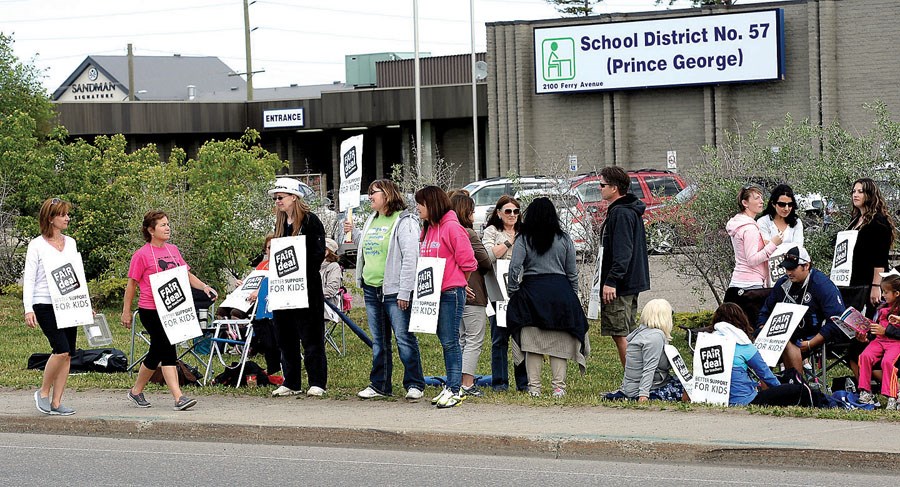Last week's announcement that the province will rescind its plan to fund special education based on population statistics rather than actual identified student needs is seen as a positive step by the Prince George District Teachers Association.
PGDTA president Joanne Hapke said the prevalence model for student funding would have had negative consequences on special-needs students, their parents and teachers. Hapke applauded the government's plan to expand priority funding to help students with mental-health challenges and those who live in low-income families.
The new supplement will pay for school meal programs, provide additional support for teachers in classrooms and early-intervention counseling and tutoring for students.
"We were very pleased with the funding they did announce and the focus on children living in poverty and children living in foster care, they've always been a concern of ours," said Hapke. "We have a lot of students that extra funding will support in our district.
"The fact the (special needs) designations that do remain within the province will still receive funding is important news for our schools. Just the fact the government chose to not go into an averaging of funding is significant. This way we have an opportunity to support the students that need to be supported, with a greater focus on indigenous students living in poverty. That's very important."
The amount the province will allocate for the supplement will be revealed when the 2020 budget is announced next Tuesday.
The prevalence model would have taken control of special-needs student funding out of the hands of individual schools and given those funds to the school district to allocate. Had the government not reversed its stance, Hapke said that would have led to unnecessary complications that could have had negative consequences for some of the province's most vulnerable students.
"The school district would determine how to spend those dollars and then it becomes a system of advocacy - who's going to advocate for their school the best to receive the dollars that are necessary," said Hapke. "Part of our understanding was the government was not going to increase the amount of funding, that they would just redistribute the funding, and so if we receive more for indigenous learners that means there's a school district somewhere that's receiving less, and that's not right.
"We can't have a system of winners and losers, especially when we're dealing with children."
In November, teachers rejected mediator David Schaub’s recommendation of a three-year contract which would have increase wages two per cent annually. One of the reasons it was rejected was the government's plan to change the special needs funding model would have precipitated changes to contract language on class size and class composition (the number of special needs students in a classroom) and how that relates to specialist teacher ratios.
B.C. teachers have been without a contract June 30, 2019. That collective agreement, retroactive to July 1, 2013 was ratified after a five-week provincewide strike which started in June 2014 and ended the following September – the longest teachers’ strike in B.C. history.
Schools across the province continue to deal with a teacher shortage brought about in part by the November 2016 Supreme Court of Canada ruling that determined the B.C. government acted illegally when it stripped collective agreement provisions around class size, composition, and specialist teaching ratios in 2002. That prompted the hiring of 3,500 teachers, which drained the pool of on-call teachers and brought many retired teachers out of retirement.
In Prince George there are 13 full-time teaching positions which remain unfilled, with 16 additional vacancies anticipated before the end of the school year.
"The message our union has been trying to get out for the last year-and-a-half is we are struggling, we are seeing needs," said Hapke. "This is truly the year that classrooms are unfilled. This has never happened to Prince George before."
According to the B.C. Teachers Federation, B.C. schools are funded $1,800 per student below the national average. The province has the lowest starting salaries in the country ($12,000 less than Alberta's) and what B.C. pays experienced teachers is the lowest of any province west of Quebec. The BCTF says that the teacher shortage demands bigger wage increases than other public sectors, which are bound by a two per cent provincially-mandated ceiling on annual increases.
No new negotiations have happened since the contract offer was rejected in November and the union is waiting for the government to come back to the table for mediated talks. Hapke said there is no immediate plan to institute any job action.
"As (BCTF president) Terri Mooring has stated, as long as mediation is occurring, the BCTF will not escalate action, and that's not our desire either," said Hapke. "Teachers want to teach."



